<< Previous | Displaying results 51-60 of 119 for "Diseases in camps" | Next >>
The Nazi Kripo, or Criminal Police, was the detective force of Nazi Germany. During the Nazi regime and WWII, it became a key enforcer of policies based in Nazi ideology.
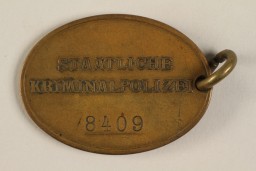
The Nazis frequently used propaganda to disguise their political aims and deceive the German and international public. Learn more.
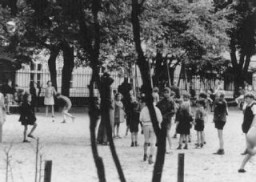
During the Holocaust, Jews were forced into ghettos with terrible living conditions, overcrowding, and starvation. Learn more about life in the Lodz ghetto.
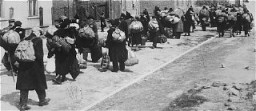
The 71st Infantry Division participated in major WWII campaigns and is recognized for liberating the Gunskirchen subcamp of Mauthausen in 1945.
The 63rd Infantry Division participated in major WWII campaigns and is recognized for liberating several of the Kaufering subcamps of Dachau in 1945.
The 8th Infantry Division participated in major WWII campaigns and is recognized for liberating the Wöbbelin subcamp of Neuengamme in 1945.
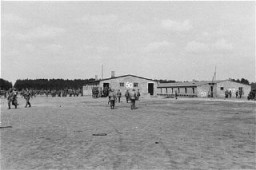
The 99th Infantry Division participated in major WWII campaigns and is recognized for liberating subcamps of the Dachau concentration camp in 1945.
The 82nd Airborne Division participated in major WWII campaigns and is recognized for liberating the Wöbbelin subcamp of Neuengamme in 1945.
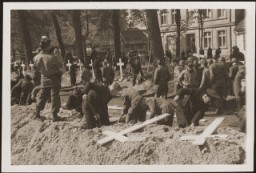
As part of the Holocaust, the Germans murdered about 90% of Jews in Lithuania. Read more about the tragic experience of Lithuanian Jews during World War II.
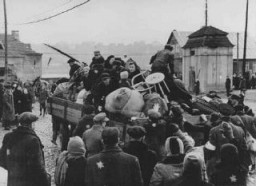
As part of the IG Farben conglomerate, which strongly supported the Third Reich, the Bayer company was complicit in the crimes of Nazi Germany. Learn more.
We would like to thank Crown Family Philanthropies, Abe and Ida Cooper Foundation, the Claims Conference, EVZ, and BMF for supporting the ongoing work to create content and resources for the Holocaust Encyclopedia. View the list of donor acknowledgement.